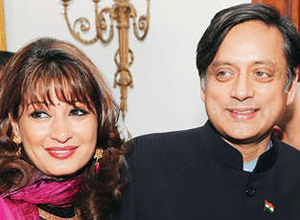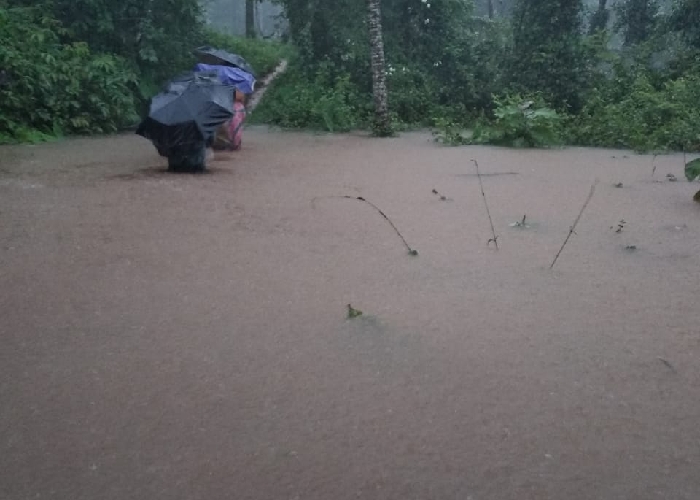 New Delhi, Jan 18: Union minister Shashi Tharoor, who had checked into the All India Institute of Medical Science (AIIMS) soon after his wife Sunanda Pushkar was found dead in a south Delhi hotel on Friday night, has been discharged after the doctors said he was fine.
New Delhi, Jan 18: Union minister Shashi Tharoor, who had checked into the All India Institute of Medical Science (AIIMS) soon after his wife Sunanda Pushkar was found dead in a south Delhi hotel on Friday night, has been discharged after the doctors said he was fine.
Tharoor had complained of uneasiness and chest pain. He was initially admitted to the ICU and was later shifted to a private ward when his condition stabilised. Doctors treating him said he was suffering from hypertension and palpitations and was feeling giddy.
On Saturday morning, Tharoor was discharged. A spokesman of the hospital said, “Everything is normal. The chest pain is normal now and his condition is stable”.
In the meanwhile, a panel of doctors of AIIMS is carrying out post-mortem on Sunanda’s body, which had been brought in on Friday night. Dr DK Sharma, medical superintendent of the hospital, had said the post-mortem would begin after the police submitted inquest report.
The process is likely to end by 2pm and a preliminary report is expected to be submitted later in the day. “But it depends on how clear the findings are. If the medical examination is not conclusive, we will have to wait for the lab reports," Dr Sharma told a news channel.
Police are probing accidental overdose of blood pressure pills as a possible reason behind Sunanda, sources said on Saturday.
Sunanda Pushkar’s creation would held in Delhi’s Lodhi Road crematorium, said Abhinav Kumar, private secretary to the minister. It is likely to take place at around 4pm Saturday.
Earlier, there were reports that body would be brought to Trivandrum, the minister’s constituency, for cremation.
Sunanda, the 52-year-old wife of the Union minister, was found dead on late on Friday at a seven-star hotel in Delhi where the couple had checked in a day earlier.
News of Sunanda's death emerged late on Friday evening, two days after her Twitter spat with a Pakistani journalist over an alleged affair with the minister.
"We will seek information from Twitter about any direct messages exchanged between Sunanda and others," said a police officer investigating the case.
Police sources also said that there was a minor altercation between Sunanda and the minister before they moved into the hotel.
They said that no suicide note was found and it could be possible that Sunanda died of tuberculosis which was diagnosed recently.
Sources also added that she died at least four hours before her body was recovered in the suite bedroom and said rigor mortis suggested that Sunanda died of a possible heart attack.
Sunanda was found dead in the bedroom of The Leela Palace suite number 345 around 8.15pm.
Meanwhile, PTI reported that Sunanda's body was shifted to the All India Institute of Medical Sciences (AIIMS) for post-mortem examination early on Saturday.
The autopsy would be carried out around 12pm by a team of doctors and the report could be available later in the evening, the news agency said.
Pushkar and Tharoor were at the centre of a raging controversy when reports emerged that she was upset over reported text and tweet messages between her husband and Mehr Tarar.
A joint statement from the couple on Thursday said that they were "happily married" but distressed by "some unauthorised tweets".







Comments
Add new comment